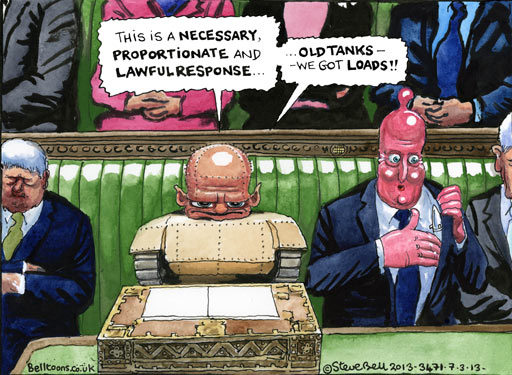 As the EU referendum’s NO campaigns get themselves together,
I find myself discussing the pros and cons of membership with those around me.
After many an uninformed, bar-side, back-and-forth chat, I realise that, many of
the potential YES voters feel that, pulling out of the EU, would be a vote for
little Britain, for a disharmonious future Europe; of the sort that saw the UK
fight two world wars.
As the EU referendum’s NO campaigns get themselves together,
I find myself discussing the pros and cons of membership with those around me.
After many an uninformed, bar-side, back-and-forth chat, I realise that, many of
the potential YES voters feel that, pulling out of the EU, would be a vote for
little Britain, for a disharmonious future Europe; of the sort that saw the UK
fight two world wars.
Generally, the public are unaware of how the EU’s
institutions work, how business is conducted within the union etc. They are
generally unaware of the many potentially negative aspects of membership. Supposed
immigrant crises, are continually reported, and blamed on our membership; The
United Kingdom Independence Party’s, 2015 general election campaign, and most
anti-EU espousal, that has made it into the wider public domain, has centred
around immigration, as a reason to tick the NO box at the referendum. Indeed,
recent polling shows that if the referendum were to be held tomorrow, the Little
Britain mentality would not prevail. However, irrespective of the general
public’s ignorance, as to how the European Union works, it will be their
collective willingness, to remain unified against all threats to national security,
which will prevent en mass movement toward the NO camp.
The UK has had peace at home since Europe first came together.
But, has Europe as a collective force, and more recently the European Union,
fostered peace more widely? Its critics would suggest that the EU has had a large
part to play in global conflicts, especially throughout the Middle East and North
Africa. Five of the top
ten, global arms exporters are EU member states. The UK, is the sixth
largest exporter. The Saudi Arabian government have been the largest global
importer of arms, and by far BAE’s (the UK’s largest arms manufacturer) best
customer. Are relationships such as these testament to peaceful Europe?
Since the Soviet-Afghan conflict in the eighties, Britain
has seen Saudi influence over the middle east, and in particular, Saudi Arabia’s
ability to channel force through Wahhabist Sunnis, in the region, of great
benefit. As such, arms trading has yet to cease, despite the fact that now this
Wahhabism, an extreme perversion of Islam, is what the UK and western
governments, more widely, are fighting in ISIL. Critics of British and European
foreign policy and arms export policy, have suggested that, in selling Saudi Arabia
arms during the cold war, the UK was merely engaging in proxy war with Russia, over
the territory of Afghanistan. Osama Bin Laden and his Mujahidin, fought away
the Russians in much the same manner as they did British and American troops,
some years later, during the Iraq and Afghan wars post 9/11. However, back in
the eighties, they did so with the seal of approval of the west, by means of
vicarious donation of arms, channelled through, the Wahhabist supporting, Saudis.
Now, this brief history of the UK-Saudi
relationship is a matter of public record, for the most part, as is Britain’s
relationship, and arms dealings, with other nations around the globe. The
question is, what does this have to do with Britain’s membership to the EU?
Well, the Campaign Against the
Arms Trade (CAAT) believes that the European Commission, together with
governments of other member states, have been pushing a European policy agenda
surrounding the sale and export of arms, that is designed to scratch away at
the ideals of non-proliferation in place of free market ones. A recent EU
Non-Proliferation Consortium review, on legislation governing the granting of export
licences for arms (The
EU Common Position), suggested that this was not the case however, and
despite its clear consideration of various allegations of contravention of the
said EU Common Position, it was concluded that, the standardised set of rules
relating to the granting of licences and adhered to by all member states, was
touted as an overall success.
The report noted that, “One clear impact had been the
increased transparency of member states’ arms exports.” But critics, including
CAAT, have asserted that this increased level of transparency, has occurred as
a consequence of the deregulation that has occurred, as a consequence of the EU’s
Common Position, which supersedes domestic legislation; legislation which is
often more stringent and restrictive. In fact, in 2014, during a review of
Britain’s export licence grants, Vince Cable admitted that some licences were
in direct breach of Additional Protocol One, of the Geneva Convention. And, in
granting a proportion of the licences the UK was breaking international law.
Irrespective of whether or not there have, or have not been any breaches, of
international law, with respect to the granting of licences, it is likely,
according to ministers, that the granting of licences is only set to increase:
the Stockholm
International Peace Research Institute reported that between 2000 and 2014,
British exports to the Gulf had risen by a whopping 70%.
If CAAT are right, then an EU agenda that continues to push
for low regulation, and high frequency of trade, inside, but also outside of Europe
would only encourage conflict in surrounding regions. Whether it’s a breach of international law on
the sale of arms, or whether there is a likelihood of human rights abuses, this
doesn’t seem to be a hurdle for the member states of the EU, in their plight to
sell arms. And, the EU’s own response to the Arab Spring and ISIS, and what
that should mean for a future policy on arms exports, was murmurings of further
deregulation of the EU Common Position, as expressed in their review.